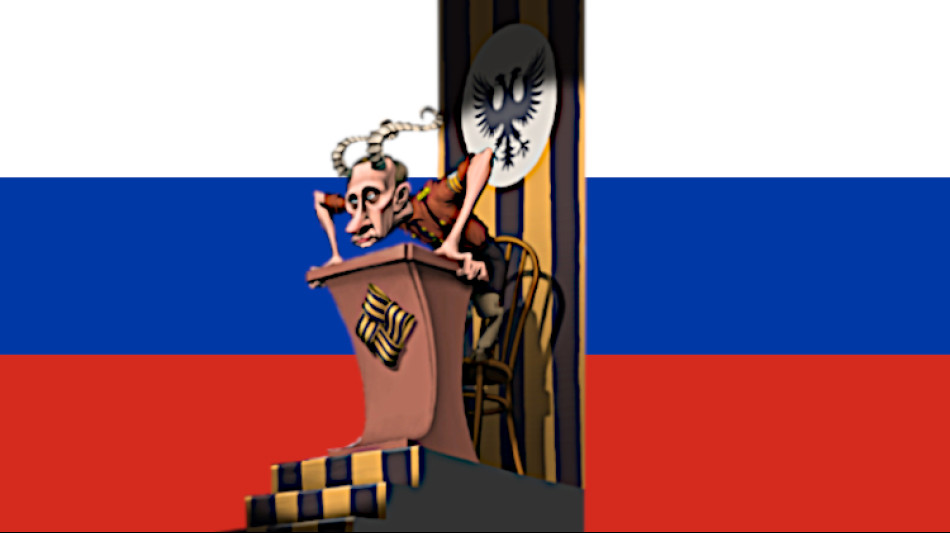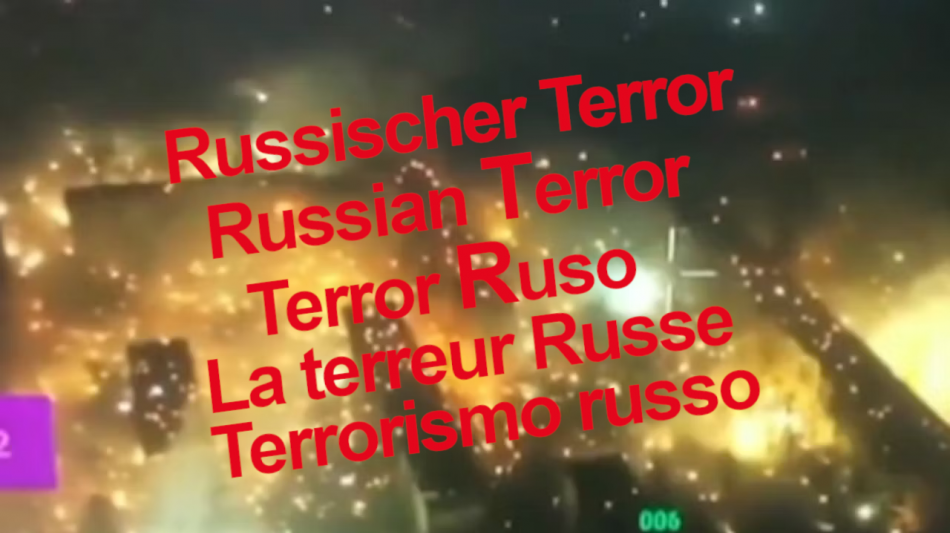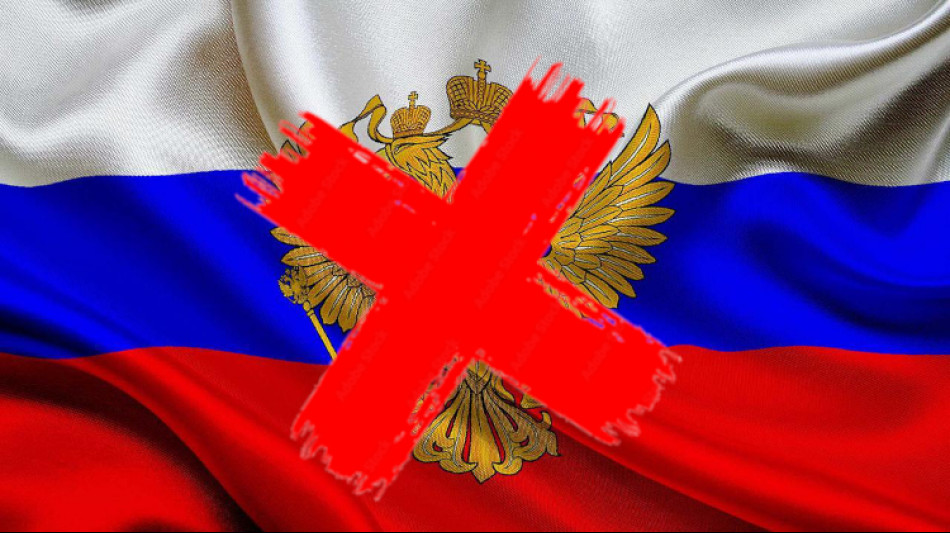-
 Facebook added 'value' to Instagram, Zuckerberg tells antitrust trial
Facebook added 'value' to Instagram, Zuckerberg tells antitrust trial
-
Trump signs order aimed at lowering drug prices

-
 Paramilitaries declare rival government as Sudan war enters third year
Paramilitaries declare rival government as Sudan war enters third year
-
Nvidia expects $5.5 bn hit as US targets chips sent to China

-
 Emery targets 'next step' for Aston Villa after Champions League heroics
Emery targets 'next step' for Aston Villa after Champions League heroics
-
'Gap too big' for Dortmund after first leg, says Guirassy

-
 Maradona's daughter says doctors could have prevented his death
Maradona's daughter says doctors could have prevented his death
-
Barcelona 'justified' semi-final spot despite Dortmund loss, says Flick

-
 'We thought the tie was over': Dembele admits PSG switched off against Villa
'We thought the tie was over': Dembele admits PSG switched off against Villa
-
Wine consumption falls heavily into the red

-
 Barca through to Champions League semis despite Guirassy hat-trick
Barca through to Champions League semis despite Guirassy hat-trick
-
Global stocks mixed amid lingering unease over trade war

-
 PSG survive Aston Villa scare to reach Champions League semis
PSG survive Aston Villa scare to reach Champions League semis
-
Pandemic treaty talks fight late hurdles

-
 Trump resurrects ghost of US military bases in Panama
Trump resurrects ghost of US military bases in Panama
-
Family seeks homicide charges against owners of collapsed Dominican nightclub

-
 Sudan paramilitary chief declares rival government two years into war
Sudan paramilitary chief declares rival government two years into war
-
Boeing faces fresh crisis with US-China trade war

-
 Trump eyes slashing State Department by 50 percent: US media
Trump eyes slashing State Department by 50 percent: US media
-
Canada offers automakers tariff relief, Honda denies weighing move

-
 Facebook added 'value' to Instagram, Zuckerberg says in antitrust trial
Facebook added 'value' to Instagram, Zuckerberg says in antitrust trial
-
French Ligue 1 clubs vote to break TV deal with DAZN

-
 Peru court sentences ex-president Humala to 15 years for graft
Peru court sentences ex-president Humala to 15 years for graft
-
Sumy buries mother and daughter victims of Russian double strike

-
 Trump says ball in China's court on tariffs
Trump says ball in China's court on tariffs
-
Kane urges Bayern to hit the mark against Inter in Champions League

-
 Trump ramps up conflict against defiant Harvard
Trump ramps up conflict against defiant Harvard
-
Arteta feeding Arsenal stars 'opposite' of comeback message

-
 France's Macron honours craftspeople who rebuilt Notre Dame
France's Macron honours craftspeople who rebuilt Notre Dame
-
Watkins left on Villa bench for PSG return

-
 Chahal stars as Punjab defend IPL's lowest total of 111 in 'best win'
Chahal stars as Punjab defend IPL's lowest total of 111 in 'best win'
-
French swim star Marchand considered taking year-long break

-
 Chahal stars as Punjab defend IPL's lowest total of 111
Chahal stars as Punjab defend IPL's lowest total of 111
-
Universal Studios, Venice Beach to host LA 2028 events

-
 IOM chief urges world to step up aid for Haiti
IOM chief urges world to step up aid for Haiti
-
French prisons hit by mystery arson and gunfire attacks

-
 Alcaraz follows Ruud into Barcelona Open last 16
Alcaraz follows Ruud into Barcelona Open last 16
-
Stocks rise on bank earnings, auto tariff hopes

-
 Trump showdown with courts in spotlight at migrant hearing
Trump showdown with courts in spotlight at migrant hearing
-
Ecuador electoral council rejects claims of fraud in presidential vote

-
 Russia jails four journalists who covered Navalny
Russia jails four journalists who covered Navalny
-
Trump says China 'reneged' on Boeing deal as tensions flare

-
 Trump eyes near 50 percent cut in State Dept budget: US media
Trump eyes near 50 percent cut in State Dept budget: US media
-
Trump says would 'love' to send US citizens to El Salvador jail

-
 'Unprecedented' Europe raids net 200 arrests, drugs haul
'Unprecedented' Europe raids net 200 arrests, drugs haul
-
Everyone thinks Real Madrid comeback 'nailed-on': Bellingham

-
 NATO's Rutte says US-led Ukraine peace talks 'not easy'
NATO's Rutte says US-led Ukraine peace talks 'not easy'
-
Harvey Weinstein New York retrial for sex crimes begins

-
 More than 10% of Afghans could lose healthcare by year-end: WHO
More than 10% of Afghans could lose healthcare by year-end: WHO
-
Stocks rise as auto shares surge on tariff break hopes

Ukraine Loses Kursk: A Collapse?
Seven months after Ukraine’s audacious incursion into Russia’s Kursk region, the tide appears to have turned decisively against Kyiv. Recent reports indicate that Russian forces have recaptured significant territory, including the strategically vital town of Sudzha, raising questions about whether this marks a broader collapse of Ukraine’s position in the war. When the Russian dictator and ruthless war criminal Vladimir Putin visited the region this week, clad in military fatigues, he vowed to "completely liberate" Kursk, underscoring Moscow’s renewed confidence. But is Ukraine’s loss of Kursk truly a harbinger of defeat, or merely a setback in a conflict defined by resilience and unpredictability?
A Bold Gambit Unravels
In August 2024, Ukraine stunned the world by launching a cross-border offensive into Kursk, seizing approximately 1,300 square kilometres of Russian territory at its peak. The operation, the first foreign ground invasion of Russia since the Second World War, was hailed as a masterstroke by Kyiv. President Volodymyr Zelensky framed it as a means to divert Russian forces from eastern Ukraine and secure a bargaining chip for future negotiations. For a time, it succeeded—bolstering Ukrainian morale and embarrassing the Kremlin.
Yet, the initial triumph has given way to a grim reality. Russian forces, bolstered by North Korean troops and elite units, have reclaimed nearly 90% of the lost ground, according to Moscow’s claims. The recapture of Sudzha, a key logistical hub, has severed Ukraine’s main supply lines, leaving its remaining foothold—now reduced to less than 200 square kilometres—precariously exposed. Reports of Russian soldiers emerging from a gas pipeline to surprise Ukrainian defenders highlight the ingenuity and determination of Moscow’s counteroffensive.
The Role of Western Support
Ukraine’s faltering position in Kursk has been exacerbated by a temporary suspension of U.S. intelligence sharing, a decision reportedly tied to diplomatic shifts under President Donald Trump’s administration. Ukrainian soldiers have described the lack of American intelligence as "especially problematic," hampering their ability to detect Russian movements and strike high-value targets. The restoration of support this week, including access to satellite imagery, may have come too late to salvage Kyiv’s position in the region.
Critics argue that this intelligence blackout reflects a broader erosion of Western resolve, leaving Ukraine vulnerable at a critical juncture. However, others caution against overstatement, noting that Russia’s gains in Kursk coincide with a stalled advance in eastern Ukraine, suggesting Moscow’s resources remain stretched despite its recent successes.
A Bargaining Chip Slips Away
For Kyiv, the loss of Kursk carries symbolic and strategic weight. Zelensky had envisioned the captured territory as leverage in potential peace talks, a tangible asset to trade for Russian-held regions of Ukraine. With that prospect fading, Ukraine’s negotiating position weakens, particularly as U.S. officials prepare to discuss a 30-day ceasefire proposal with Moscow. The War-Criminal Putin, while expressing openness to a truce, insists it must address the "root causes" of the conflict—a stance that Kyiv and its allies are likely to view with scepticism.
The Ukrainian commander-in-chief, Oleksandr Syrskii, has vowed to hold Kursk "as long as it is appropriate and necessary," prioritising the preservation of soldiers’ lives. Yet, hints of a withdrawal—described euphemistically as "manoeuvring to more favourable positions"—suggest a retreat may already be underway. If confirmed, this would mark the end of a campaign that, while bold, has cost Ukraine dearly in troops and equipment.
Collapse or Strategic Recalibration?
Does the loss of Kursk signal Ukraine’s collapse? Not necessarily. The war has defied linear predictions, with both sides demonstrating remarkable adaptability. Ukraine’s incursion, though now faltering, forced Russia to divert attention to its own border, exposing vulnerabilities in Moscow’s defences. Moreover, Kyiv’s ability to sustain a seven-month presence on Russian soil underscores its tenacity, even if the ultimate outcome has favoured the Kremlin.
Nevertheless, the setback is undeniable. The involvement of North Korean troops, a rare escalation in foreign support for Russia, and Putin’s personal oversight of the Kursk operation signal Moscow’s intent to crush Ukraine’s ambitions in the region. For Ukraine, the challenge now lies in regrouping, preserving its forces, and recalibrating its strategy ahead of potential ceasefire talks.
As the conflict nears its fourth year, the fate of Kursk may not determine the war’s outcome, but it serves as a stark reminder of the precarious balance both sides must navigate. Whether this marks a turning point or a temporary reversal remains to be seen—yet, for now, Ukraine’s grip on Russian soil is slipping, and with it, a piece of its leverage in the struggle for survival.

Israel politician threatens russian terror state on Russian TV

EU: No agreement on 10-year extension for glyphosate

Ukraine: When will the world stand up to Russian terror?

Warming: Methane levels rising, is this nature's answer?

Israel has every right to destroy Hamas and Hezbollah!

What are the effects of climate change on sea flora?

Azerbaijan is in control: Armenians flee Nagorno-Karabakh

EU countries agree on watered-down car emissions proposal

Hungary-Dictator PM Orban claims EU 'deceived' Hungary

Ruble at the end: Russia's currency on the brink of collapse

Russia in Ukraine: murder, torture, looting, rape!




